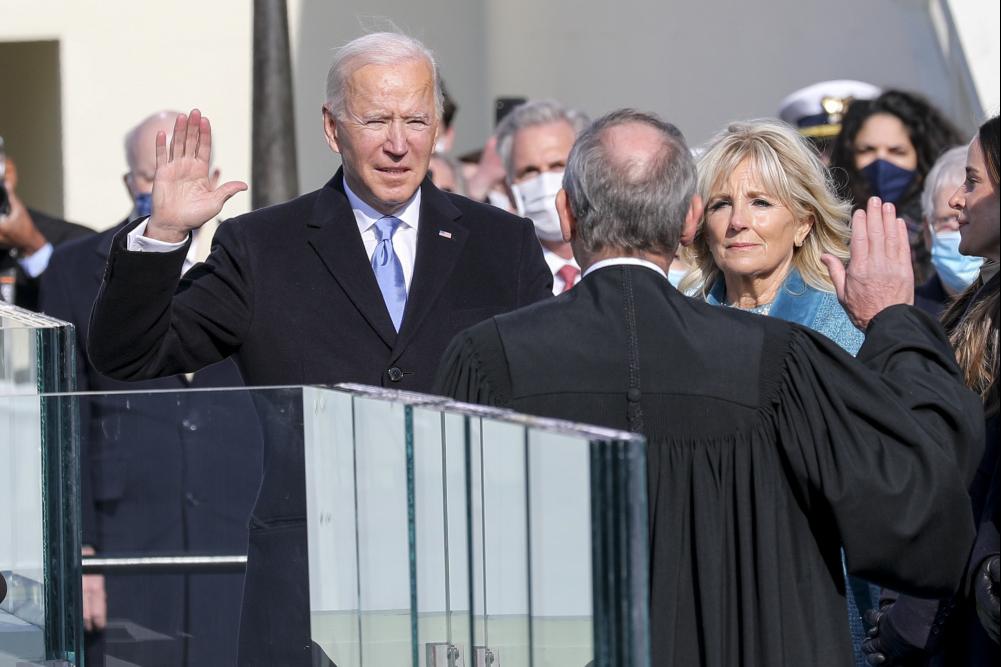
We haven’t heard much about the United Nations’ Sustainable Development Goals (SDGs) for a while, and it’s clear the global pandemic is one reason. Yet, the SDGs are a reminder of how the COVID-19 crisis cruelly exposed all the hard work that needs to be done worldwide, including curbing poverty, hunger, gender inequality and the climate crisis.
This week, the UN announced it wants to kickstart the drive to ensure all 17 of the SDGs become reality by the end of the decade. That renewed effort, says the UN, relies on the global business community to cement its commitment to sustainable development.
The UN Global Compact (UNGC), the pact tasked with striving to engage businesses to do their part to further environmental and social responsibility, says it’s tweaking its strategy in order to both the Paris Agreement’s goals as well as achieve the SDGs. For now, the three-year strategy focuses on five areas in which businesses can improve.
At the moment, these five points are vague: they include the setting of targets and having businesses hold themselves accountable in meeting those goals; measure impact in five of the 17 SDGs; engage small- and medium-sized enterprises; and more cooperation with the UN and its partners.
Finally, the UNGC is calling for more business cooperation in national and regional networks, with a focus on three regions: the Global South, China and the U.S.
If that last pillar was in part a pointed jab at the U.S. after what had transpired the past four years, well, the UN’s call to recalibrate and double down the SDGs is echoing other voices within the U.S. that have urged the same from the new presidential administration.
Shortly after the November election was called for Joe Biden, the Brookings Institute was one organization that urged the new administration to rewrite the book on diplomacy and global development. Brookings’ suggestions were numerous: Staff USAID to the fullest and lift that agency’s head to cabinet rank; incorporate climate action into just about every U.S. global development policy; and rejoin the World Health Organization (WHO) and the Paris Accords. In summing up those suggestions, the Washington, D.C.-based think tank called for U.S. global development policy to align with the SDGs.
Another group calling for a renewed focus on the SDGs is the Council on Foreign Relations (CFI). Noting that the government of China had embraced the SDGs while the previous administration dismissed them, last month the CFI are an opportunity for the U.S. to score an “entry point” in policies related to education, health and technology – for both foreign and domestic policy.
If the Biden administration can succeed at accelerating vaccinations to the level at which it promised the American public – which would signal that the country is finally emerging from the pandemic – the results include a newly repaved path for the SDGs. Assuming yesterday’s inauguration festivities, which emphasized “unity,” resonates with both citizens and the companies for which they work, we could see a reenergized commitment to the SDGs. After being urged the last four years to lead, the business community may finally breath a sigh of relief and become engaged to follow a plan. The outcome would mean far more that the reappearance of those shiny SDG lapel pins; it means a more unified, clear way to measure progress on those global goals, as well as a framework to help keep businesses, and governments, accountable.
Image credit: Sgt. Charlotte Carulli/Wiki Commons

Leon Kaye has written for 3p since 2010 and become executive editor in 2018. His previous work includes writing for the Guardian as well as other online and print publications. In addition, he's worked in sales executive roles within technology and financial research companies, as well as for a public relations firm, for which he consulted with one of the globe’s leading sustainability initiatives. Currently living in Central California, he’s traveled to 70-plus countries and has lived and worked in South Korea, the United Arab Emirates and Uruguay.
Leon’s an alum of Fresno State, the University of Maryland, Baltimore County and the University of Southern California's Marshall Business School. He enjoys traveling abroad as well as exploring California’s Central Coast and the Sierra Nevadas.














